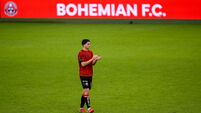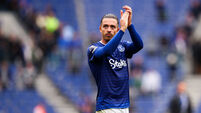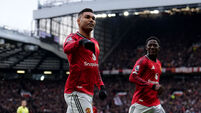‘A people of saints, poets and defenders’
“There are some days that never end,” wrote Enrico Maida amid the bedlam, “and July 4 — a date of historic relevance for all humanity — was one such for Italian football”.
All the memories of that other semi-final, in 1970, came flooding back: the extra time “unforgettable, just as it was 36 years ago”; Franz Beckenbauer, now as then seemingly unperturbed; the shots that cannoned against post and crossbar “as if fate had decided to compensate the Germans for all those times we’ve beaten them”.














